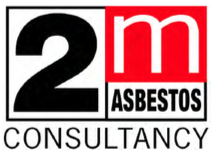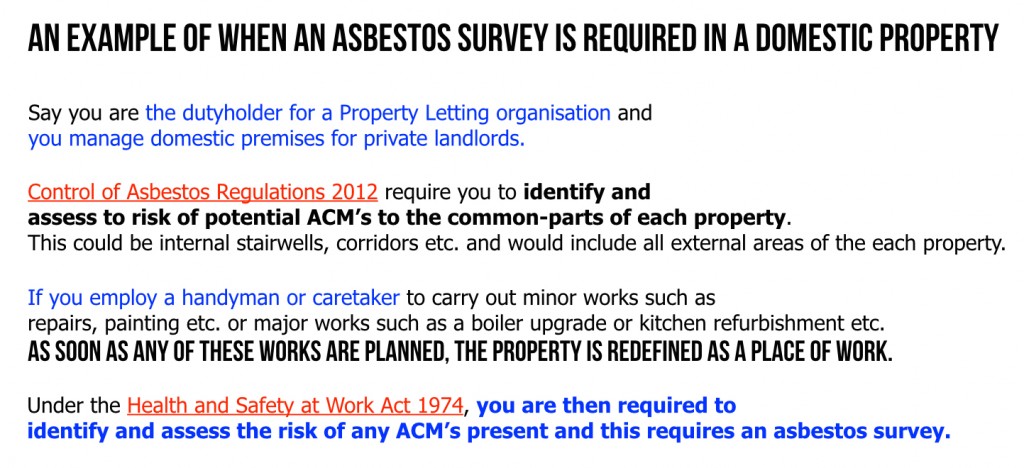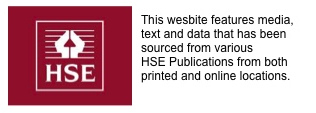Domestic Premises
Domestic premises do not require management except to Communal areas (see below) of the building(s).
However, as soon as works are planned to take place within a Domestic property, the property becomes a workplace, which requires Identification and Risk assessment of potential ACM’s under the Health and Safety Act Work Act 1974 and CAR 2012, usually by Management or Refurbishment/ Demolition survey works.
ACM’s may be present if the building was constructed or refurbished before 2000. All asbestos use was prohibited by 1999. You need to do all that you reasonably can to identify any ACM’s in your building(s)/ premises.
Legislation, Regulation and Guidance
Below, in more detail are the relative Laws, Regulations & requirements, taken from HSG 264 Asbestos: The Survey Guide.
‘Duty to Manage’ asbestos does not normally apply to domestic premises, However, the requirements do apply to common parts of premises (Communal areas) but do not place any direct duties on landlords for individual houses or flats.
Communal areas include, but are not restricted to, foyers, corridors, lifts and lift shafts, staircases, Boiler houses, vertical risers, gardens, yards and outhouses.
When managing asbestos, the requirements do not apply to rooms within a private residence.
The Health and Safety at Work etc Act 1974 section 2, requires all employers to conduct their work so their employees will not be exposed to health and safety risks. They should also supply information to other people about their workplace which might affect their health and safety. Section 3 places duties on employers and the self-employed towards people not in their employment and Section 4 contains general duties for anyone who has control, to any extent, over a workplace.
In addition, the Management of Health and Safety at Work Regulations 1999 requires employers to assess the health and safety risks to third parties such as tenants who may be affected by their activities, and to make appropriate arrangements to protect them.
These requirements mean that organisations such as local authorities, housing associations, social housing management companies and others who own, or are responsible for, domestic properties, have legal duties to ensure the health and safety of their staff (and others) in domestic premises used as a place of work. As employers, the organisations also have duties under the general requirements of CAR 2012 to identify asbestos, carry out a risk assessment of work liable to expose employees to asbestos and prepare suitable written plans of work.


